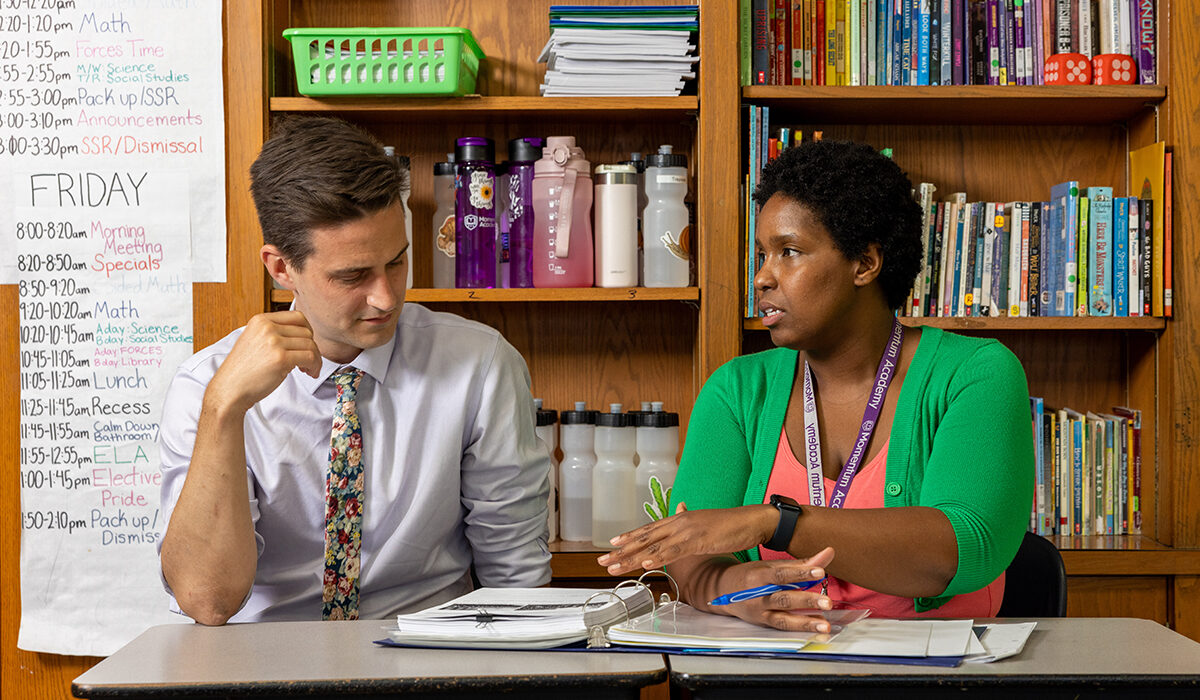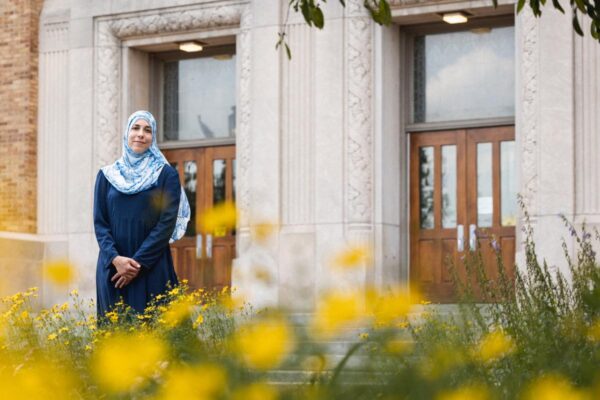The best teachers never stop learning.
That is why the School of Continuing & Professional Studies (CAPS) at Washington University in St. Louis, in collaboration with partner Teach St. Louis, has opened its Master of Arts in Teaching and Learning (MATL) program to veteran teachers who work in high-need classrooms.
Initially designed for novice teachers in the Teach St. Louis Residency, now known as Teach St. Louis, the MATL program introduces educators to instructional strategies that accelerate better learning outcomes. CAPS also is introducing a new certificate for educators who already have a master’s degree but want to further their skills.
The goal is to take already good teachers and make them great, said Laura Vilines (AB ’06), co-founder of Teach St. Louis, a nonprofit dedicated to training and supporting teachers who work in high-need classrooms.
“Great teachers create a strong, caring classroom environment and really know their subject area,” said Vilines, a CAPS instructor. “Most of our veteran teachers come to us with those pieces already in place. So what we focus on is how to deliver instruction that aligns with best practices and how to improve student growth and achievement. In the MATL, we support our teachers in setting ambitious but feasible goals and then equip them with the tools to measure progress and respond to student performance throughout the year.”
CAPS and Teach St. Louis joined forces in 2018 to launch St. Louis’ first residency program. Residents, most of whom started their careers in another field, apprentice for one year in a mentor teacher’s classroom, followed by three years as a paid lead teacher. Residents also take CAPS coursework in their content areas and in classroom planning, ultimately earning master’s degrees.
The program has been a success, preparing and placing more than 200 new teachers in partner public and charter schools. But Vilines quickly recognized that experienced teachers also could benefit from Teach St. Louis’ professional coaching and CAPS coursework. So last year, she piloted a new initiative, the Teacher Leadership Program, for veteran educators, some of whom serve as mentors to current residents. Now entering its second year, Teacher Leadership students also are enrolled in the MATL program.
Rachel Ruggirello, associate director of WashU’s Institute for School Partnership, is one of their instructors. She said the CAPS-Teach St. Louis partnership is unique because it combines theory with application.
“For teachers it’s like, ‘I’m going to learn this strategy, the research behind it and then I’m going to also do it with my class, collect evidence and see how it worked for my students,” said Ruggirello, who is leading an advanced teaching methods course for secondary STEM teachers.
“That approach is really compelling for all teachers, because even if you’ve been teaching for a long time, it’s exciting to learn newer strategies for teaching science and math with your colleagues and to figure out what’s working for everybody in this community of practice,” Ruggirello added.
Between federal education grants and the deeply discounted CAPS tuition, the average out-of-pocket cost of the master’s degree is about $2,500 for educators who serve in partner schools. Teach St. Louis currently supports teachers at Atlas Public Schools, Momentum Academy, North Side Community School, Ritenour School District, the Soulard School, St. Louis Public Schools and University City School District.
Teachers who already have earned their master’s degrees may earn a CAPS certificate in instructional excellence.
Partnerships like CAPS and Teach St. Louis make a difference and give educators — those new to the field and those with years in the classroom — the tools and support they need to help their students achieve.
Kilinyaa Cothran
Next year, Teach St. Louis will launch an alternative certification program for teachers who are leading classrooms but don’t have their initial teaching certification. Those students also will earn a CAPS MATL degree as part of the program.
Kilinyaa Cothran, CAPS vice dean, said it’s more important than ever to build new pathways for educators.
“Long before the pandemic, schools have been working to address teacher turnover and improve instruction,” Cothran said. “Those issues are even more pressing as we see educators leaving the profession and students struggling. Partnerships like CAPS and Teach St. Louis make a difference and give educators — those new to the field and those with years in the classroom — the tools and support they need to help their students achieve.”



